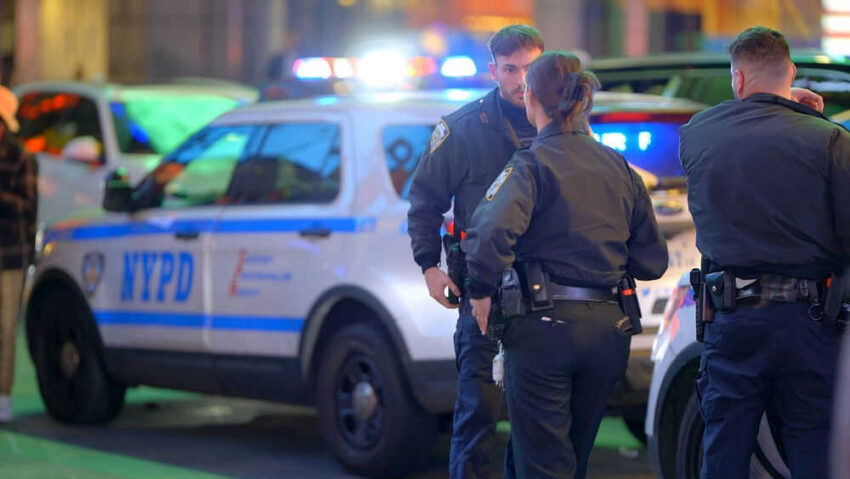(LibertySociety.com) – After a shocking shooting in the heart of Manhattan, Senator John Kennedy dismisses calls for stricter gun control, leaving many to wonder if the real issue is being ignored.
At a Glance
- A gunman opened fire in a Manhattan skyscraper, killing four and wounding one before dying by suicide.
- Senator John Kennedy argues against new gun restrictions, emphasizing the need for “idiot control” over gun control.
- The shooter left a note referencing CTE and the NFL, raising questions about mental health and violence.
- Debate reignites over gun control, mental health, and the influence of high-profile organizations like the NFL.
Senator Kennedy’s Stance on Gun Control
In the wake of the tragic shooting in Midtown Manhattan, Senator John Kennedy (R-LA) has made headlines with his staunch opposition to calls for stricter gun control measures. Following the incident at 345 Park Avenue, where a gunman killed four people, including an NYPD officer, before taking his own life, Kennedy issued public remarks that have sparked both support and controversy. He argued that instead of more gun laws, what the country truly needs is better “idiot control,” pointing to the failure of existing regulations to prevent such tragedies.
Senator John Kennedy Dismisses Calls for Gun Control in Wake of NYC Shooting: ‘Need More Idiot Control’ https://t.co/vgVqkQ5MxF
— Mimzy Borogroves No DM’s (@MBorogroves) July 29, 2025
Kennedy’s comments have resonated with many who are frustrated by what they see as misguided attempts to legislate away the Second Amendment rights of law-abiding citizens. His stance underscores a broader sentiment among conservatives that the focus should be on addressing the root causes of violence, such as mental health issues, rather than imposing further restrictions on gun ownership.
Details of the Tragic Event
The shooting took place on July 28, 2025, when 27-year-old Shane Devin Tamura entered the skyscraper at 345 Park Avenue, armed with an M4 rifle and wearing body armor. Tamura opened fire in the building’s lobby, claiming the lives of an NYPD officer and a woman, before ascending to the 33rd floor. There, he killed additional employees at the Rudin Management office before committing suicide. A note found on Tamura mentioned chronic traumatic encephalopathy (CTE) and blamed the NFL for his condition, adding a complex layer to the investigation.
Authorities confirmed Tamura’s identity and mental health history the following day, sparking debates about the intersection of mental health and gun violence. The attack’s location, housing the NFL’s headquarters, has brought additional scrutiny to the league’s handling of player safety and the long-term effects of brain injuries.
Mental Health and Accountability
The note left by Tamura referencing CTE and the NFL has intensified discussions about the possible link between brain injuries and violent behavior. CTE is a neurodegenerative disease associated with repeated head trauma, often found in athletes and military veterans. However, diagnosing CTE is only possible post-mortem, and its symptoms can vary widely, complicating efforts to establish a direct causal relationship with acts of violence.
While mental health professionals acknowledge the complexities of managing conditions like CTE, some argue that focusing solely on mental health interventions without addressing firearm access is insufficient. This perspective is often at odds with gun rights advocates who emphasize the need for greater focus on mental health treatment rather than additional gun control measures.
The Broader Implications
The Manhattan shooting has reignited national debates over gun control, mental health, and the responsibilities of high-profile organizations like the NFL. The incident highlights the challenges of preventing mass shootings, even in areas with strict gun laws, and raises questions about the effectiveness of current regulations. As the investigation into Tamura’s background and motives continues, the political polarization over gun rights and public safety is likely to intensify.
In the short term, this tragedy has resulted in immense trauma and loss for the victims’ families and the wider New York City community. Long-term implications may include increased security measures for high-profile office buildings and renewed scrutiny of gun laws and mental health services. The NFL and other sports organizations may also face pressure to address player safety and mental health concerns more comprehensively.
Copyright 2025, LibertySociety.com .
Click this link for the original source of this article.
Author: Editor
This content is courtesy of, and owned and copyrighted by, https://libertysociety.com and its author. This content is made available by use of the public RSS feed offered by the host site and is used for educational purposes only. If you are the author or represent the host site and would like this content removed now and in the future, please contact USSANews.com using the email address in the Contact page found in the website menu.








